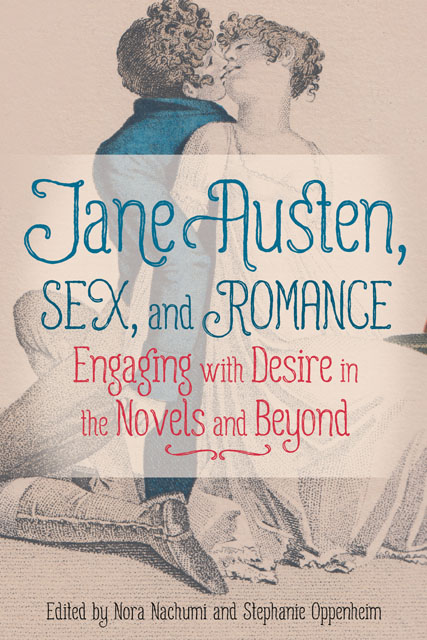Book contents
15 - In Bed with Mr. Knightley: How Austen and Her Readers Understand Sexual Compatibility
Published online by Cambridge University Press: 11 January 2023
Summary
Deborah Knuth Klenck and Ted Scheinman
In Margaret Drabble’s early novel The Waterfall, the protagonist Jane Gray comments almost offhandedly,
“How I dislike Jane Austen. How deeply I deplore her desperate wit . . . Emma got what she deserved, in marrying Mr. Knightley. What can it have been like, in bed with Mr. Knightley? Sorrow awaited that woman: she would have done better to steal Frank Churchill, if she could.”
Unlike Jane Gray, the two of us think that Jane Austen does let readers know that she has an idea of what it would be like, in bed with Mr. Knightley. Austen has left plentiful indications in her novels about which characters, and which personal qualities, promise a good time in bed. A smart but playful manner in conversation is one; a lack of selfishness is, self-evidently, another. And most of all, a good dancer makes a good lover. Henry Tilney makes this last association explicitly in his sustained joking conversation with Catherine Morland:
“I consider a country-dance as an emblem of marriage. Fidelity and complaisance are the principal duties of both; and those men who do not chuse to dance or marry themselves, have no business with the partners or wives of their neighbours.”
When we “consider a country-dance”—for example, the Westons’ ball at the Crown Inn—we find that a gallant and generous gesture indicates an auspicious lover. Mr. Knightley rescues Harriet Smith from the contemptible and contemptuous Eltons by asking her to dance; in doing so, he raises considerable animal spirits not only in his partner, but also in Emma, their witness:
His dancing proved to be just what [Emma] had believed it, extremely good; . . . and [Harriet] bounded higher than ever, flew farther down the middle, and was in a continual course of smiles.
Indeed, as Mr. Darcy observes, the prospect of a ball “is a subject which
always makes a lady energetic.” And, though Sir William Lucas is not a
generally reliable or perceptive source, we have no reason to disbelieve his
comment on Darcy’s first dance with Elizabeth: “‘Such very superior dancing
is not often seen” (PP 103).
- Type
- Chapter
- Information
- Jane Austen, Sex, and RomanceEngaging with Desire in the Novels and Beyond, pp. 227 - 242Publisher: Boydell & BrewerPrint publication year: 2022

